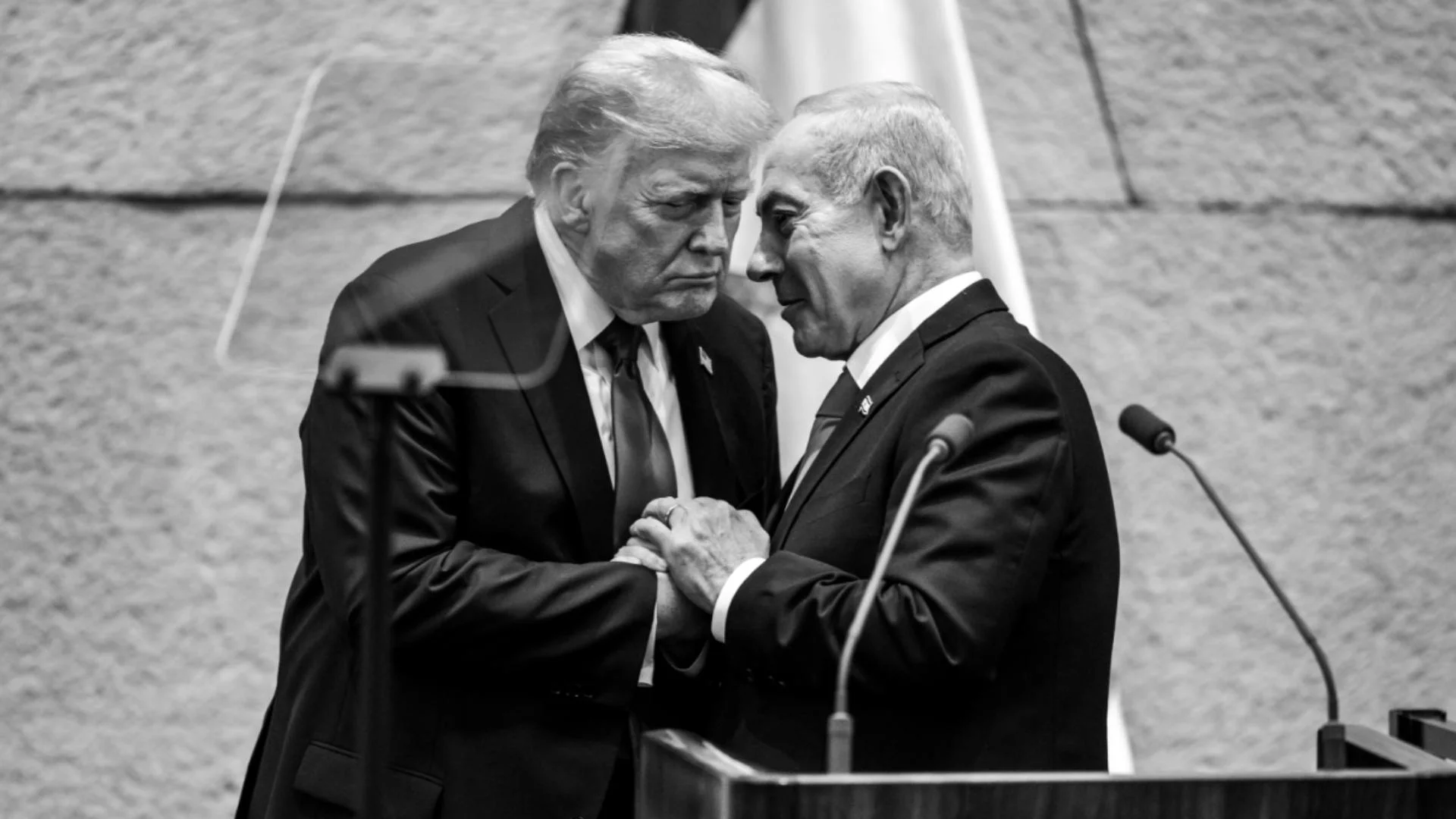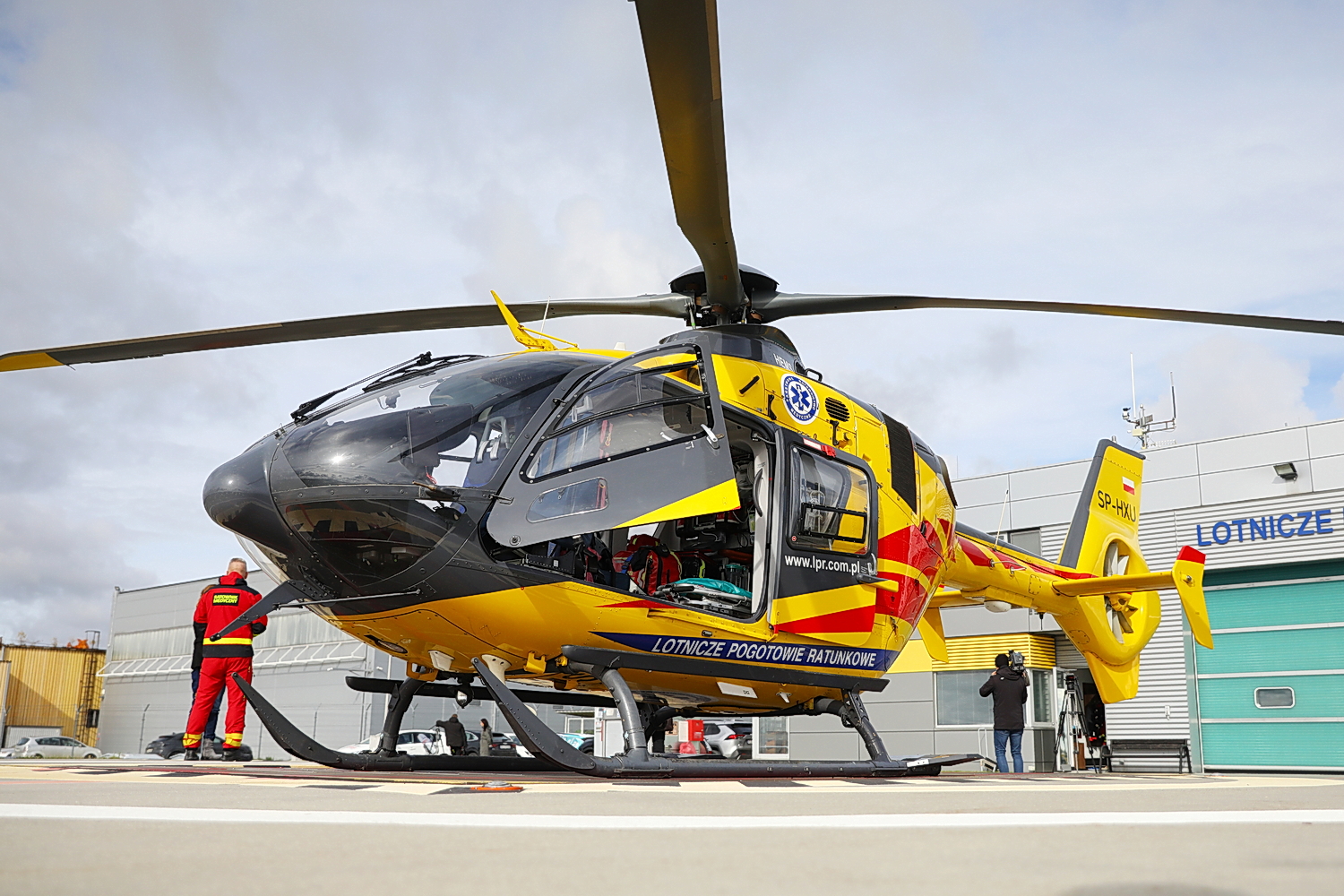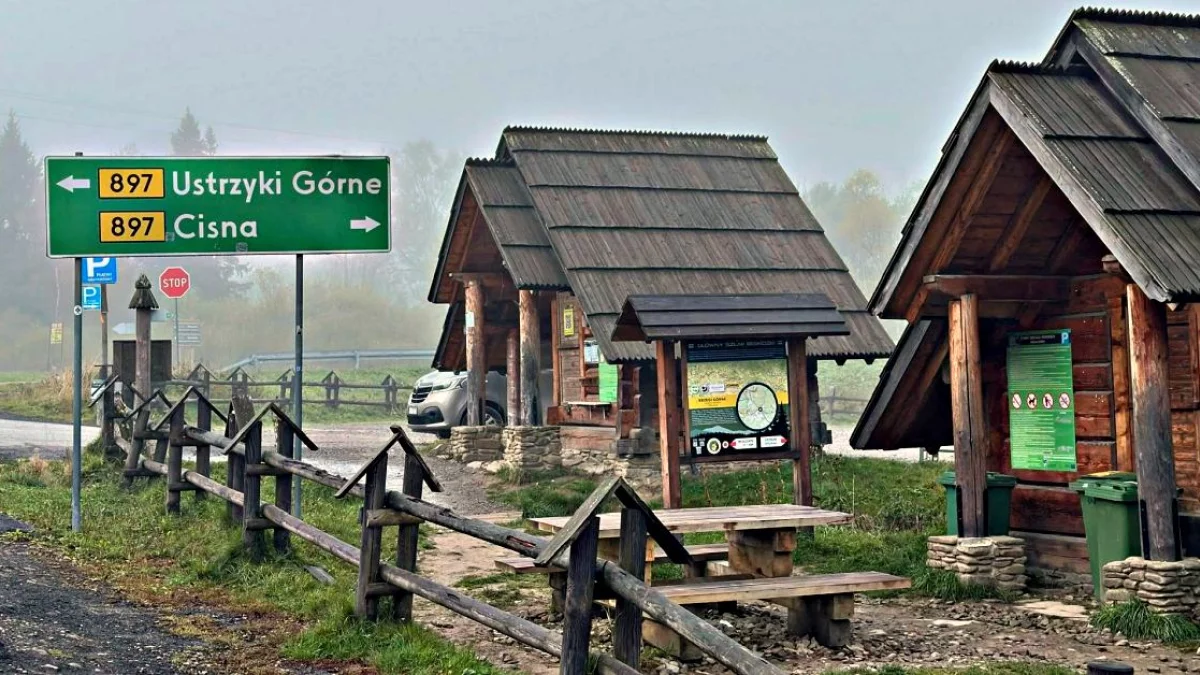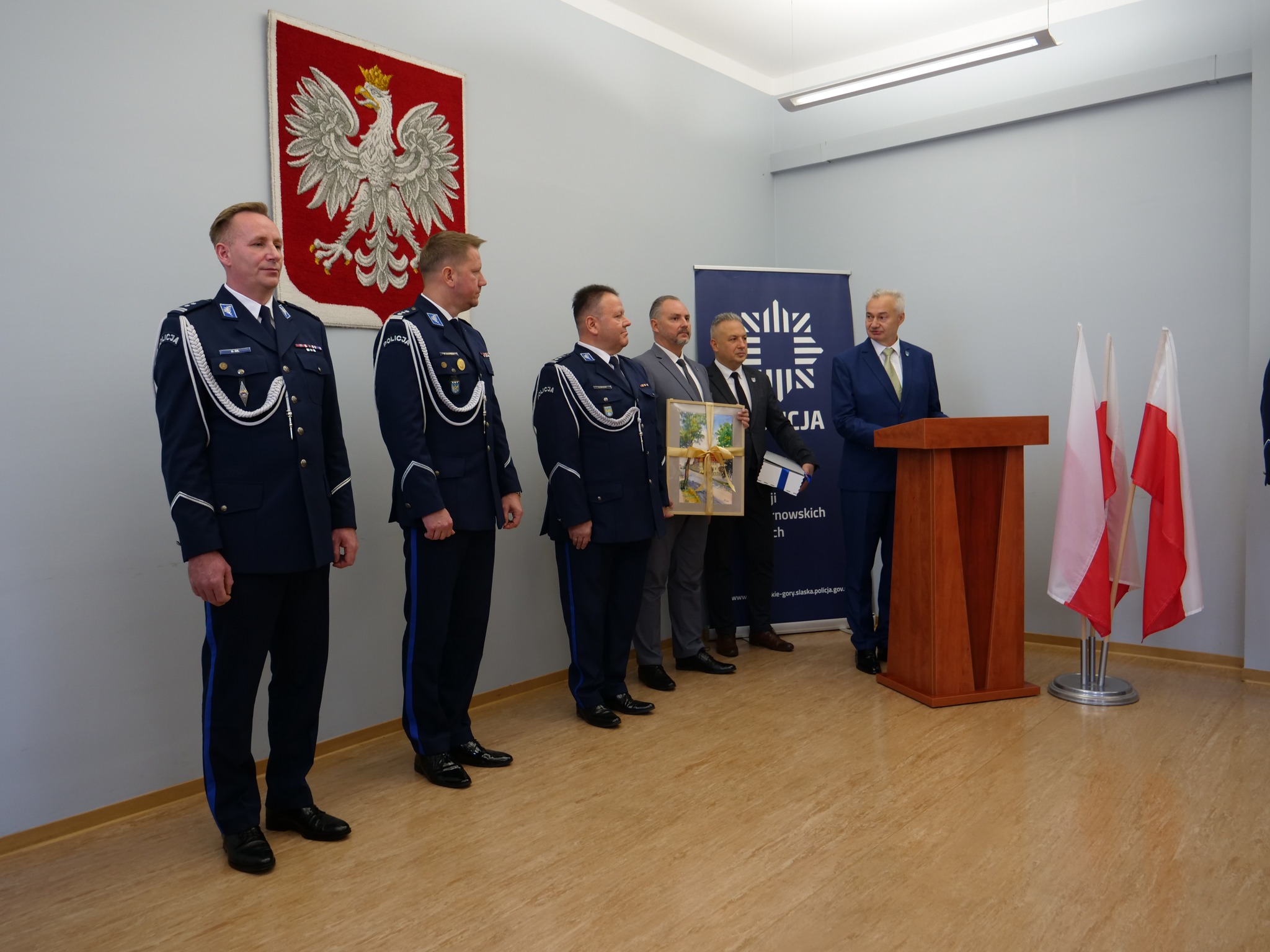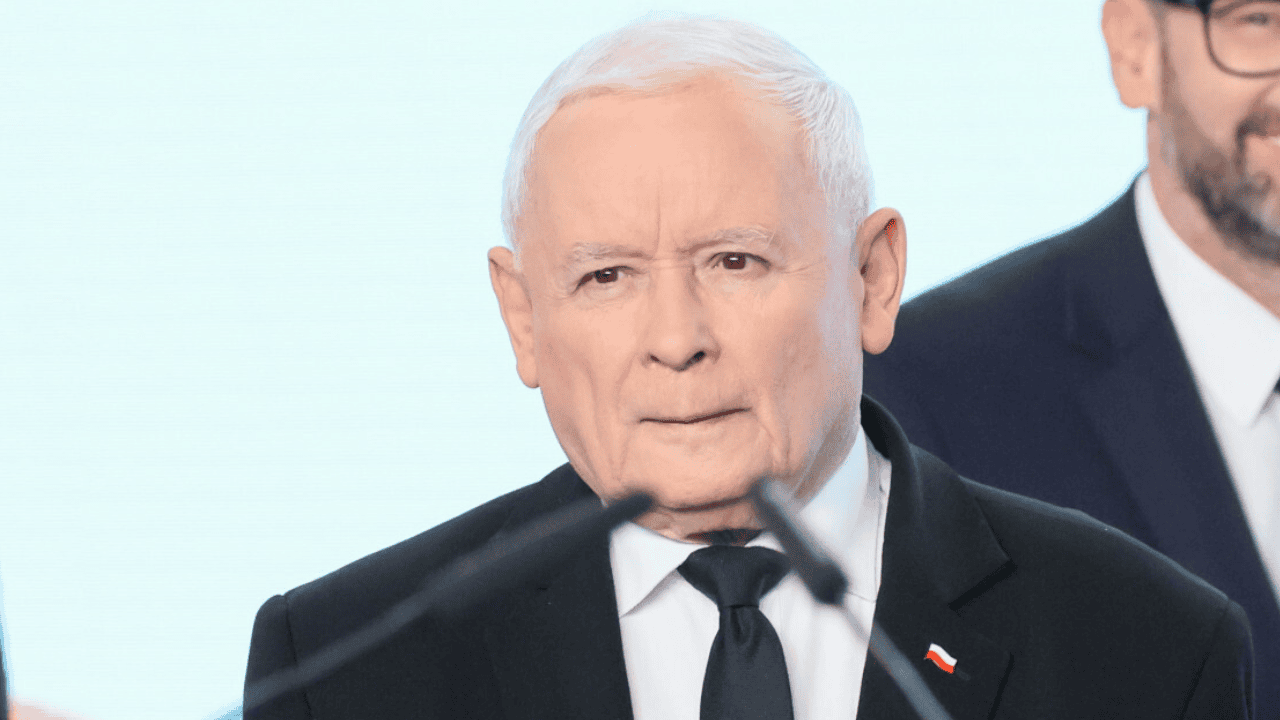The February 1945 Yalta Conference was 1 of the most crucial historical events in the past of modern Poland. At the conference we were set fresh boundaries and a fresh political model of power. This affected all spheres of social life. Poland since the 15th century – entangled in the east national crucible – was torn from it and "moved" by 250 km to the West. Day by day – through political changes and absorption of German industrial centres in Silesia and Pomerania, the country liberated itself from the remnants of existing (de facto) feudal relations and began to develop, like another European nations.
In historiography and popular opinion, the conference is demonized, as the alleged 4th demolition of Poland and betrayal of Polish interests. This is considered mainly due to the opinions of emigration historians, representing the erstwhile earth layers, which lost their latyfundia in the Kresach. But did most people truly share that unfair view? After a terrible defeat in September 1939, did anyone always dream that Poland would come out of the Second War, as a separate state, with the suffering and distress of war granted to it for years – Silesia and Pomerania? Who believed that the eternal Prussian threat would be removed erstwhile and for all? Who thought we'd start being a country with a dense manufacture and a maritime economy? Unlike the London environments, the folk layers welcomed fresh changes with large hope. For most overcrowded villages, the possible of obtaining their own land share through agricultural reform, or the chance of hiring industry, was a real chance of living.
Two governments - PKWN and London
In the summertime of 1944, in Belarus, the Red Army hit the Nazis with a decisive blow. Operation Bagration yet decided on the German defeat in planet War II. The front was approaching the borders of Poland. In July 1944, russian troops entered ethnically Polish territory and there was a request to administer liberated lands. The National Council – acting as a Polish parliament, established the Polish National Liberation Committee on 21 July 1944, which was to act as interim government. In the liberated areas there were simultaneously military structures under the government in London (AK), which in the instructions of October 27, 1943 prohibited cooperation with the Soviets and ordered that the underground authorities stay in the country and the AK in the conspiracy, and in the case of repression and possible arrests, the transition to self-defense. The national structures of "London" with the delegate Jankowski and Gen. Bór-Komorowski did not want to look passively, but by the method of facts done impose their power in the individual areas (Action of Storm).In turn, acting as the alleged Chief Leader – Gen. Sosnkowski felt that it did not make sense, due to the fact that it would only lead to subsequent arrests and in the dispatch of 25 July 1944 ordered a transition to conspiracy.
The National Army – on ethnically Polish lands – did not aid the Red Army in a deadly fight against Germany. There were attacks and open collaboration between the AK and the NSZ with Wehrmacht and Gestapo. russian and AL guerrillas were shot. This attitude of “underworld” led the russian military authorities to believe that they could not tolerate elements hostile and underground in the immediate back of the front. The demolition of the forest troops has begun and their incorporation into General Berling's troops. Resistant interns.
The tragedy of the Warsaw Uprising was born just due to an effort by the London structures of its "power" over the capital at any cost. This was a de facto mad London consequence to the PKWN uprising. Answer failed, ended with 200,000 Warsawers. The AK was incapable to fight Germany alone. It was the Lublin government that had arguments in his hand, behind him stood the most powerful ally- USSR and actual power in liberated lands. Only what could be done was to work in any way with PKWN structures. Churchill understood this, and the Prime Minister of the London Government, Stanisław Mikołajczyk, understood this. The London government, as well as the Lublin government, were not legal structures. no of these politicians were elected. They all owed their positions to the will of the large powers and cooptations by their colleagues. Therefore, legalism could not be invoked, real strength had to be taken into account, and only the USSR had this in Poland.
Mikołajczyk was a “trusted” Churchill and usually blindly followed the recommendations of the English government. In late 1944, the most crucial thing for the Prime Minister of the English Government was to hold on to russian war effort. This spared English blood in France and Italy. That's why Churchill did everything to get the London government to deal with its protégé, at the price of far-reaching concessions with Stalin and the Lublin government. This was to be done and the first visit of Nicholas in Moscow in August, as well as the second 12 October 1944, where the question of consent to the so-called. Curzona Line, as the basis of the Polish-Soviet border. Churchill had already threatened Nicolas with withdrawing designation for the government in the event of refusal. The English Prime Minister did everything he could to force Poles to submit. It was on his orders that president Raczkiewicz released Sosnowski from the position of Chief Leader, and he besides resigned in the hope that the government in London would bend and accept allied proposals. Unfortunately, Mikołajczyk's resignation on November 24, 1944 did not have the expected effects in London. His successor was chosen Arciszewski from the PPS and a collision course from the "realpolitik" was maintained. Churchill, understood that the support of the Londoners had to be withdrawn and his pet Nicholasczyk tried to coopt to PKWN. Another option, due to the fact that there is no. Otherwise England will have no real influence in Poland at all.
The smoke of Mikołajczyk and the reluctance of the English to Arciszewski immediately utilized the USSR and proposed to transform the Lublin Committee into an authoritative Polish interim government with the establishment of representatives of the Allies. Despite the reservations of the Anglo-Saxon USSR, on December 24, 1944, the Polish Interim Government promised to recognise PKWN. This sparked Arciszewski's protest, which, in the radio transformation of 19 January 1945, "took his hand out to the russian Union" and promised fair cooperation. But it was besides late, the Red Army began liberating the remainder of the Polish lands on January 12 and within 2 weeks it reached Odra. In the country, PKWN actually administered the country, the AK no longer existed. Meanwhile, the Western Allies completely crushed in the Ardens licked wounds. In the face of the upcoming Yalta Conference, all the aces up his sleeve were Stalin and he did not hesitate to usage them.
Roosevelt's goals
U.S. president F.D. Roosevelt only inaugurated his 4th word on 20 January 1945, was weak and ill. He flew to Yalta with a full array of general affairs specified as the division of Germany, the completion of the war in Asia, the establishment of an global order (UN). In order to accomplish these goals, he needed the assistance of the USSR and Stalin. He was willing to pay concessions especially in the area of Central and east Europe. On the Polish issue, Roosevelt mostly agreed with the presumption made by the large 3 in Tehran – the east border of Poland will be determined on an cultural basis, which is reflected in the alleged Curzon Line. In the west, Poland was to receive compensation from German lands from which the population would be resettled. On the issue of a government that would administer Poland until the elections – Roosevelt's first thought was to establish a alleged presidential council that would execute management roles. The president emphasized that both the Lublin government, which represents about 30% of Poles, and the competitive London government are not legal due to the fact that they were not elected in any election. The Council set up would make it possible to combine different political lines, as the alleged ‘representative government’. Speaking on behalf of the Polish number in the USA, Roosevelt tried to get Stalin to resign from Lviv and Borysławski Zagłębie, as compensation for Królewiec, who was to come to the USSR, but did not insist on it.
Objectives of Churchill
The main objectives of England and Churchill were to push the USSR distant from the mediate of Europe and to gain any control over governments in the countries of South and Central Europe. The Prime Minister of England besides did not want to severely weaken Germany. Therefore, erstwhile it comes to the east boundary of Churchill, he was absolutely on defender of Curzon Line, hoping to satisfy Stalin's appetite. He opposed besides much broadcasting for Poland in the West. Churchill did not recognise PKWN as a typical government for Poles, nor did he have any sympathy for Arciszewski. He proposed the creation of the Polish government in Yalta and the inclusion of his protégés: Mikołajczyk, Romer and Grabski, and then he will retreat designation of Arczewski and recognise the fresh power. Churchill expected that his position would not like the Polish armed forces fighting alongside England. He called on Stalin, possibly to show the Poles a generous motion and a "gift" of Lviv, so that he could leave Yalta with something more.
Objectives of Stalin
Stalin pointed out Poland's key location on the road from Europe to Moscow and the related safety issue of the USSR. For the last 30 years German raids have been through the Polish “corritary”. so Poland should be strong militarily and linked to the USSR, so that the next “cross” expedition to Moscow will never be repeated. In addition, he raised the substance of the honour of the USSR and the commitments previously made. After all, Curzona Line was invented by the Anglo-Saxons during planet War I without Russia's participation. It is natural that the government of the USSR cannot request little than his opponents gave him 20 years ago. Furthermore, the USSR has already handed the Lviv Ukrainians over and cannot retreat from it. On the issue of western borders, Stalin absolutely pushed the line of measles and Lysa Lusatia with the mouth of Oder to the Baltic, as appropriate compensation for Poles. He was already in that position in Tehran. He had already given his postulates to members of the Lublin KRN.
Molotov led the Polish government. He rejected any attempts to make ad hoc – in Yalta of the Polish government – as incompatible rules of self-determination of nations. He felt that the Lublin government was "well-being" and had the designation of both the population and russian troops fighting against Germany, so there is no request to make a fresh government. It is best that he is the basis for the creation of a fresh temporary government of national unity. It should only be extended, but only by "non-fascist" elements. This request is imposed by Molotov, which made the 2 biggest Polish parties fall from the top – most PPS and SN, whose activists were associated with either sanitization or sympathy for fascism. In specified a state of things, the only of the fewer candidates to co-opt from London were the folk of the PSL, or truly Nicholas with their surroundings.
Borders
W Yalta did not truly have any deeper discussion on the east border of Poland. It was as mentioned in Tehran, and was based on the alleged Curzona 1920 Line in the E– version, which de facto reflected the distribution of cultural nationalities on emerging lands as part of the Polish state. The demarcation was mostly the Bug River with Brest and Lviv on the side of the USSR and Białystok on the side of Poland. The line was of course a compromise, due to the fact that on the 1 hand it took purely Polish people Grodzierzów as well as Vilnius, on the another hand Poland took over areas with a large number of Ukrainian and Belarusian elements. Poland donated about 179,000 km2 to the USSR.
The western border of Poland in the version forced by the USSR passed through the lower course Oders up to the mouth and then continued along the Lusatia Nysa until the border with the Czechs. The area of the alleged Recovered Earth was 101 1000 km2 and included rich and industrialized lands of Silesia and Pomerania. They were ethnically mostly purely German.
W Yalta has not precisely determined the course of this border, although Stalin has de facto done so. Roosevelt, raising Arciszewski's unfortunate speech, (who gave an interview in December 1944, in which he emphasized that the Polish government does not want Szczecin and Wrocław) suggested asking Poles themselves what they truly want first. Therefore, the final communication does not specify precisely the fresh boundaries in the West. This has just become 1 of the main reasons for accusing the Allies of alleged Yalta treason. specified a strong sense of injury in the London circles was due to the fact that Poland did not know the actual territorial compensation to be received. If it were clearly stated in February 1945 that behind Lviv and Vilnius Poland will get Wrocław, Szczecin, Gdańsk, Opole and Kołobrzeg – a lament raised in the London press would be half the size.
Addressing government issues
Undoubtedly, the most fiercely discussed issue in Yalta was the creation of a representation of the Polish state on liberated Polish lands and the request to solve administrative dualism associated with the existence of 2 Polish governments. The Allies despite large differences in this issue wanted to solve this problem here to show their unity outside. The positions of the parties and the effort by England and the USA to make Polish representation in Yalta have already been explained, even the introduction of the Polish representation in Yalta, Bishop Sapieha, professors of Bujak and Kutrzeba, Mikołajczyk, as well as Bieruta and Osóbka – Morawski, was considered to effort to make a postulated council of “presidents”. All these attempts were consistently broken up by Stalin and Molotov, who stood in the position of having to guarantee the safety of russian troops fighting Germany. And safety can supply an exclusive Lublin government actually administering the liberated lands. After 4 days of resistance, the Anglo-Saxons gave up their demands entirely. The basis for the creation of the Polish representation was to be "reorganized on a broad democratic basis" by the Lublin government with Beirut and People's Republic of Moravia, recognized 2 months earlier by the USSR. It will be named “the temporary government of national unity”. After coopting non-fascist elements from London, the allies accredit their ambassadors.
Stalin's stubbornness was understandable, there were alarming signals from western Germany and Switzerland about the agreements between the Nazis and the military authorities of the Anglo-Saxon forces. Wehrmacht stopped fighting and gradually gave the German land to the Western Allies. In return, the Anglo-Saxons allowed them to decision east to fight the USSR under Berlin. This was a transfer of looted assets and hiding war criminals. Montgomery even created combat units from erstwhile SS troops. Therefore, Stalin could not afford any mistake and lose control of the Polish authorities.
However, victory
It must be clearly stated that the boundaries set in Yalta were a large Polish victory. It was a triumph of realism over noble sentimentalism. The state was losing land in which the Polish were a number forever. In the fresh realities caused by the war and the awakening of nationalisms – especially Ukrainian, after the Volyn crime, there was no chance for Poles and Ukrainians to co-exist together. Poles could no longer service as "cultural guides" and landowners in the Borderlands. The communist revolution in Russia had a very strong impact on the layers of the Belarusian and Ukrainian peasantry, which began to emphasize its class and cultural distinctness. These people have already created their own elites and armed forces. In 1945, antagonisms were so strong that the separation of these ethnicities was a necessity. Even if a plebiscite was passed on these lands – little than 20% of the population would talk for Poland. Together with the Borderlands, Polish large agricultural property and magnateria were liquidated, for centuries having a negative impact on the interior Polish affairs. It was besides the last act of the drama of the nobility Poland, which was incapable to make out of its servants – full citizens and kept them in the essence of colonial exploitation. This layer paid for selfishness with its own annihilation. However, the top-down boundary demarcated current cultural animosities and gave the chance in the long word to establish good neighbourly relations.
In exchange for poor, backward border lands devoured by national conflicts, Poland received rich industrialised centres from which the German population was deported. These lands were many times more valuable than the Kresy. Poland received wide access to the sea with ports, shipyards and the chance to participate in trade with the world. But the most crucial issue was the immense chance of civilization, which was given by fresh – industrialized lands. Despite sentiment II, Rzeczpospolita was 1 large economical disaster and a civilizational regression in the life of the average Pole. In 1939, the per capita income was much lower than 1913 in legislature for the Tsar, inactive 60% of the population lived on the farm, there was no dense manufacture and capital, urbanization processes stood, 3% of the village had access to electricity and the widespread phenomenon was a return to the horsepower teams.
Yalta - through its fundamental solutions gave a new, very affirmative impulse to the further life of the nation. It was a bitter treatment for many (earth), but undoubtedly effective for most. The cultural heritage of the Kres is not taken from us and we can return to it constantly. However, life cannot be based on illusions and historical sentiments. True, real improvement requires a constant increase in the level of civilization and cultural lowest layers. This was not at all thought in the second Polish Republic, it only became possible through the transformations that started the spitting Yalta.
Peter Panasiuk



